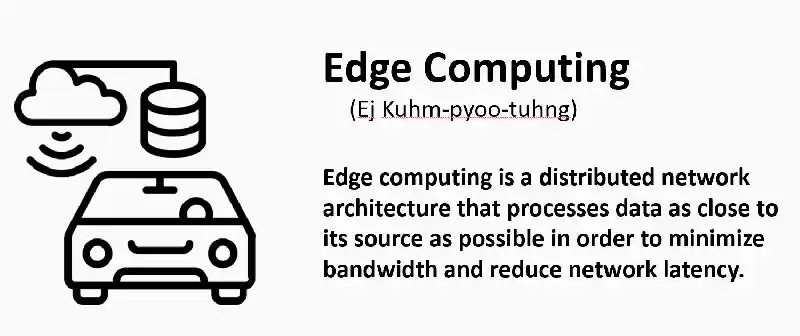What is Edge Computing?

Edge Computing is a disbursed Network structure that tactics Records as near its source as viable so as to decrease Bandwidth and decrease Network Latency. An vital purpose of area computing is to lessen conversation time among Clients and Servers. In a few Instances the records is processed at the originating Device itself — and most effective the maximum important facts is ever transferred off the tool.
In addition to facilitating Real-Time Data Processing, the advantages of edge computing encompass:
- Improved Response Time – facts doesn’t have to tour to and from a far flung records center for processing.
- Bandwidth optimization – best the most important inFormation desires to be transferred over the commUnity.
- Security optimization – the security chance Footprint is decreased because much less unencrypted Data is sent over the network.
The technology that are riding edge computing encompass the Internet of Things (IoT), Software-Defined Networking (SDN), fifth era Wireless (5G) Networking and Blockchain.
What Does Edge Computing Mean?

Edge computing is a common and popular means of improving networks to promote efficiency.
Edge Analytics
In the early days of huge information, a regular philosophy eMerged and pleasant practices, in most cases, involved Routing statistics to a imperative records warehouse on Web Page or within the Cloud, wherein it might be stored, retrieved, analyzed and sculpted. This has remained a dominant version till Currently, while “edge” records Collection started to rise up as a practical alternative.
To gather data near the threshold of a network, organizations appearance far aField from the facts warehouse and consider a way to accumulate and examine data close to its supply. An amazing instance is in Internet of factors (IoT) structures, wherein it is able to no longer be practical to funnel quite a few device or sensor information into the facts warehouse.
The pursuit of aspect Analytics is gaining Ground in IoT architectures and different forms of Business enterprise sySTEMs. Because businesses can “skinny” facts or in any other case cull data consequences, aspect records collection and analytics can help with issues including network Congestion and Latency.
Edge Security
An Intelligent Device has its own computing Functionality so it can process records as near its supply as feasible. While that is beneficial when a direct transfer of facts is crucial, it also increases the hazard that intelligent gadgets at the threshold can grow to be assault surfaces for Cybersecurity threats.
To shield this new type of network Node, many agencies are turning to Secure Access Service Edge (SASE) which mixes Software-described huge region commuNity (SD-WAN) competencies with community security services. The SASE Framework includes abilities which include cloud access safety Agents (CASBs), Zero Trust and next-gen Firewalls as a service (FWaaS) in a unmarried cloud provider Model.
Edge Computing vs. Fog Computing vs. MEC Computing
A lack of agreed-upon standards has complicated the way facet computing offerings are being marketed.
Although “edge” appears to be the most famous manner of describing the concept of extending the cloud to the point where records originates, the competing labels Fog Computing and MEC Computing also are being utilized by companies — from time to time as synonyms.
To keep away from confusion, community architects endorse using the label Edge Computing while discussing the general concept of lowering latency among the data’s source and supPorting Compute/Storage resources.
The label Fog Computing have to be used when facts is sent to a nearby Gateway server for processing. Fog Computing is regularly related to Cisco. Gateways can also be called a Fog servers or Fog nodes.
The label Multi-Access Edge Computing have to be used while discussing the open standards framework for side computing that is being developed with the aid of the nonprofit group ETSI. The framework is designed to Make sure Builders have get right of entry to to a Constant set of APIs.
Edge Icons created by way of Freepik – Flaticon.
Your Score to Edge Computing article
Score: 5 out of 5 (1 voters)
Be the first to comment on the Edge Computing